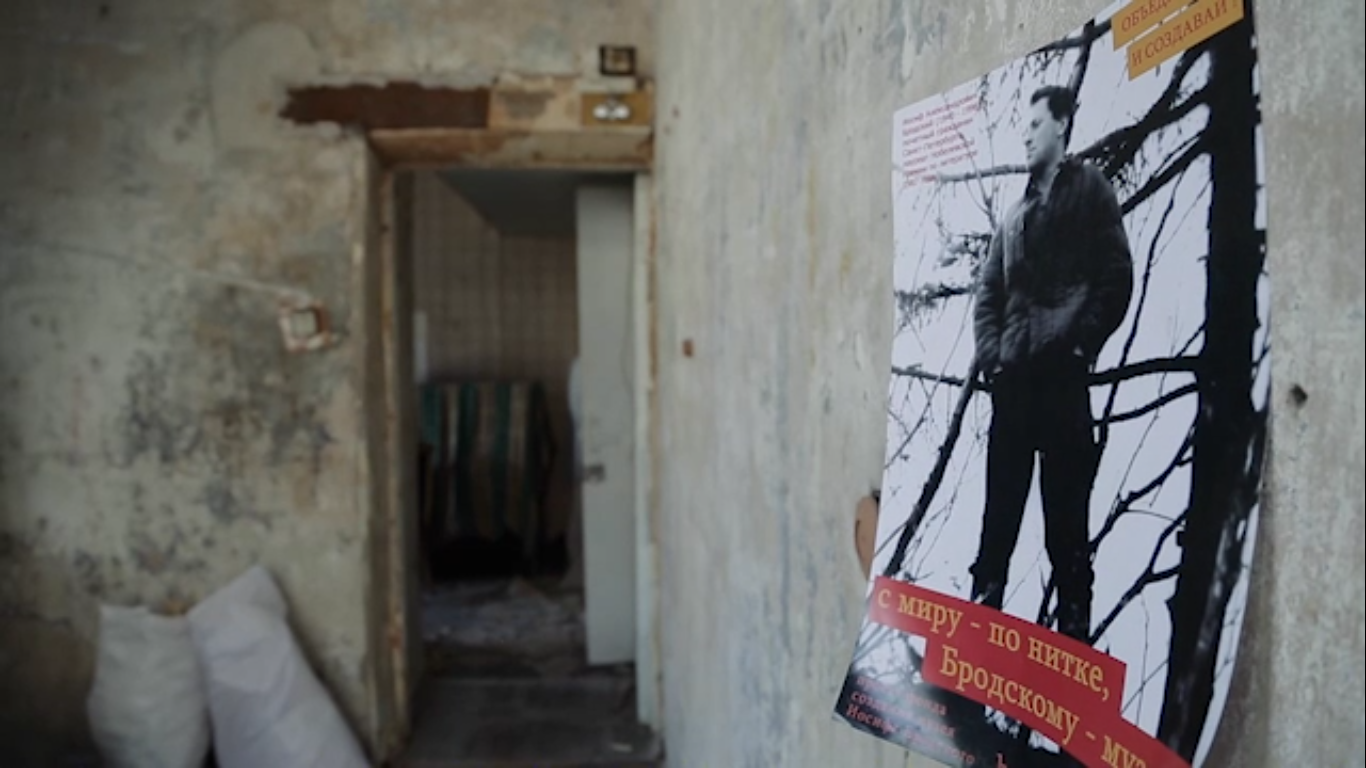
Synopsis
To stay with the facts: Joseph Brodsky (born 1940) was put on trial in 1964, accused of ”social parasitism”, sent to working camp, came back to Leningrad for some years until he was expelled in 1972, went to America and lived there until his death in 1996.
The film deals with the ambition to make a museum for Brodsky in the house, where he lived 1940-1972. A fund behind the legacy of the writer works hard to have the museum ready for his birthday May 24. The workers who renovate, the architect who oversees and controls the process, visitors who knew the poet and had been in the flat, the funders behind – they are all there with a film’s focus on the complicated ever-lasting repair, with small visits outside the house, where guides inform Brodsky-interested young and old people about him and read aloud from his poems. Slowly you see the rooms being filled with portrait busts of Brodsky, photos of him, several floating in the bathtub that his father, a photographer, used when he developed his negatives. And poems are being written on the walls, readings are arranged, also recordings with Brodsky’s own mesmerizing voice. Magic.
BUT the main – alive - character of the film is 80 year old Nina Vasilievna, who lives in the komunalka, the communal residence and who suffers from all the building activities going on around her. She is definitely against a museum close to her in the appartment, ”it’s against the law”, she says, who occupies a room of this special Russian phenomenon, the mentioned komunalka. She suffers yes, but in a way she also seems to enjoy to have all these working men around her, to whom she can communicate her dissatisfaction. Which she does the whole way through, until the day where the ”museum” opens for one day and people queue to get in and see. Nina, ”the granny” as some of the young people call her, lived there when the Brodsky family was next door and she ”helps” the museum people in some cases to point out where the table was standing… and of course she is more than curious, when she is told that the red-haired, English speaking young girl downstairs in the courtyard at the cocktail of the opening is the younger daughter of Brodsky.
You are so much amused when watching this film with dedicated, passionate people who are there to do a craftman’s job or to argue with Nina, the difficult old woman, who apparently has fascinated the director, maybe a bit too much for us viewers, who could also have done with less renovation to make the sequences, where the poetry come more into the core of the narration. But for sure the film has magical sequences and makes one want to read more Brodsky – and to visit the komunalka, where he lives for 32 years… if that is possible… (Tue Steen Muller)
back
Director: Boris Karadzhev
A unique socio-cultural phenomenon of the history and life of the Soviet Union


